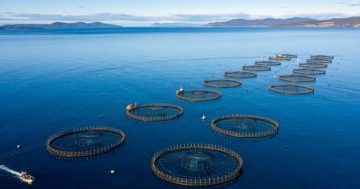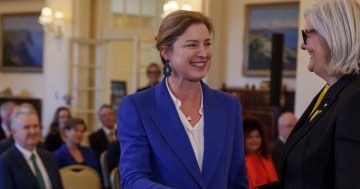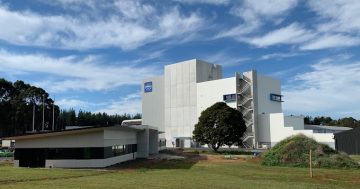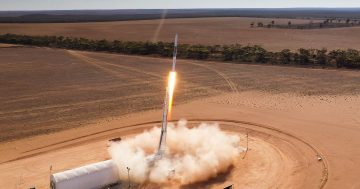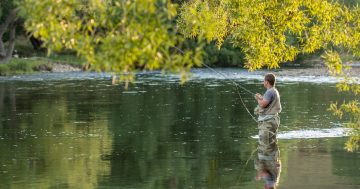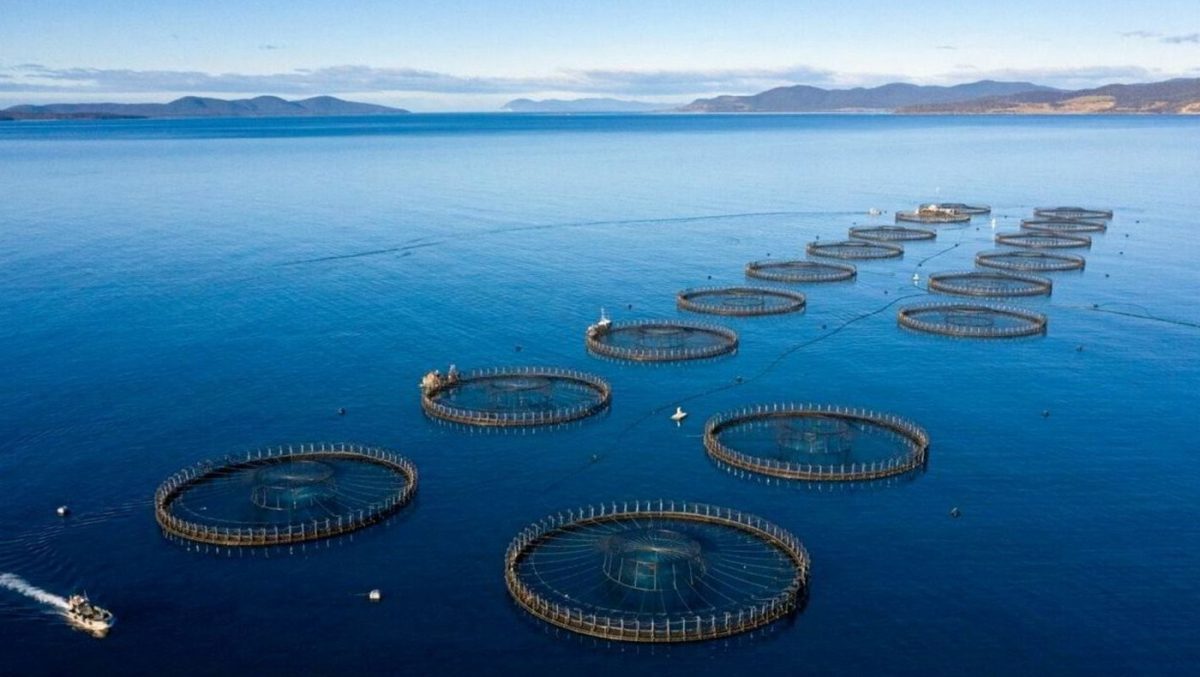
Salmon farm pens at one of 11 leases located on Macquarie Harbour. Photo: Tassell.
The long-running controversy over whether salmon farming in south-west Tasmania’s Macquarie Harbour should continue may soon come to a head, with Minister for Environment Tanya Plibersek announcing a consultation process will run from December to February.
The consultation was mandated after Ms Plibersek received three requests to reconsider a 2012 referral decision governing marine farming in Macquarie Harbour.
It was determined in 2012 under section 75(1) of the Environment Protection and Biodiversity Conservation Act 1999 (EPBC Act) that a proposed expansion of Marine Farming in Macquarie Harbour was not a controlled action if undertaken in a particular manner (the NCA-PM decision). This essentially meant that the environment minister at the time determined that, if conducted in the way proposed, salmon farming wouldn’t have any significant impact on the environment of the harbour.
But the three requests that were received between June and August 2023 claim salmon farming is having an unacceptable impact on the harbour, and in particular the Maugean skate, an ancient and endangered bottom-dwelling fish that lives only in Macquarie Harbour.
On its webpage, the Australian Marine Conservation Society claims that the intensive aquaculture in the harbour results in uneaten fish-feed and fish faeces sinking to the bottom. They say this is driving microbial activity that consumes oxygen and further depletes the naturally low-oxygen levels in the harbour.
“Such is the extent of this, that ‘dead zones’ have been created throughout the harbour’s deeper waters,” they claim.
A statement from Ms Plibersek says the consultation will be broad, and that it will give workers and their union, the industry, local communities, environment groups, scientists, and state and local governments a chance to have their say.
They will be asked to consider the work of the joint Tasmanian and Federal Government Maugean Skate Recovery Team, any decision of the Tasmanian Government’s Environment Protection Agency about the extension of salmon farming licences, the conservation advice for the Maugean skate, community views and any other relevant matters.
The consultation period will run from 4 December 2023 to 2 February 2024, after which the department will consider the information received. In the meantime, salmon farming in Macquarie Harbour will continue.
In a 1 November address to the Tasmanian Parliament, state Greens MP Dr Rosalie Woodruff said the evidence showed that salmon farming pollution was the primary driver of the anticipated extinction of the Maugean skate.
“This was all forecast by the salmon industry in 2011 when it admitted that the big expansion it was planning to do would cause what it called, ‘minimal to moderate harm to the species’,” she said.
“That was at a time, 12 years ago, when the tonnage of salmon farming – the biomass – was incredibly small compared to what it is today. Since then, we have had a succession of disasters in Macquarie Harbour, all caused by inappropriate salmon farming in the wrong environment.”
Commonly called Tasmanian salmon, the fish are actually non-native Atlantic salmon that were introduced to Australia and which are farmed in large round pens into which pelletised food is thrown each day.
There are currently 11 salmon farming leases in operation in Macquarie Harbour, and 17 water monitoring stations have been placed around the harbour to check water quality.
Atlantic salmon is farmed by three companies in Tasmanian waters and is the highest value and volume fishery product in Australia. Apart from Macquarie Harbour, operations have also been established on Tasmania’s east coast in recent years.


